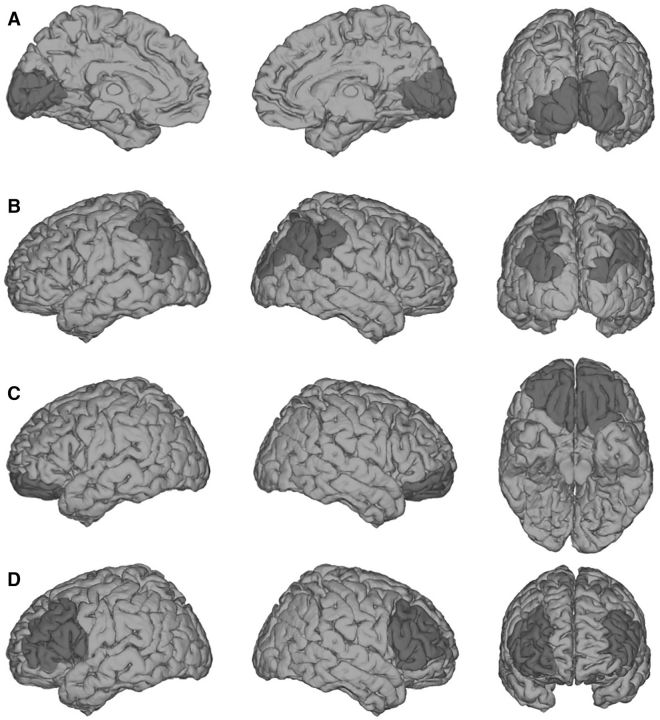Figure 2.
Relationships between cortical lesions and general awareness of the external world. Shown here are schematic depictions of typical lesion locations for each of the following types of impairments. A, Bilateral occipital lesions can cause cortical blindness (Melnick et al., 2016) but preserve an individual's general awareness of the surrounding world, via other sensory modalities. B, Bilateral parietal lesions can cause Balint's syndrome, typically characterized by an inability to perceive multiple objects in the visual field coherently, but again, this leaves basic sensory awareness intact. C, Bilateral orbitofrontal lesions cause problems with social regulation, but not sensory perception or consciousness. D, Patients with bilateral lateral PFC lesions are “conscious” in the sense that they are “awake,” as opposed to being in a coma, but they lack the ability to engage meaningfully with the external world with a normal level of conscious awareness. Extensive unilateral PFC lesions do not tend to cause these symptoms, highlighting that one functional side of PFC may be sufficient to support general conscious behavior. However, further psychophysical evidence indicates that even unilateral PFC lesioned patients may suffer from specific impoverishment of subjective perceptual experiences (Del Cul et al., 2009; Fleming et al., 2014).

